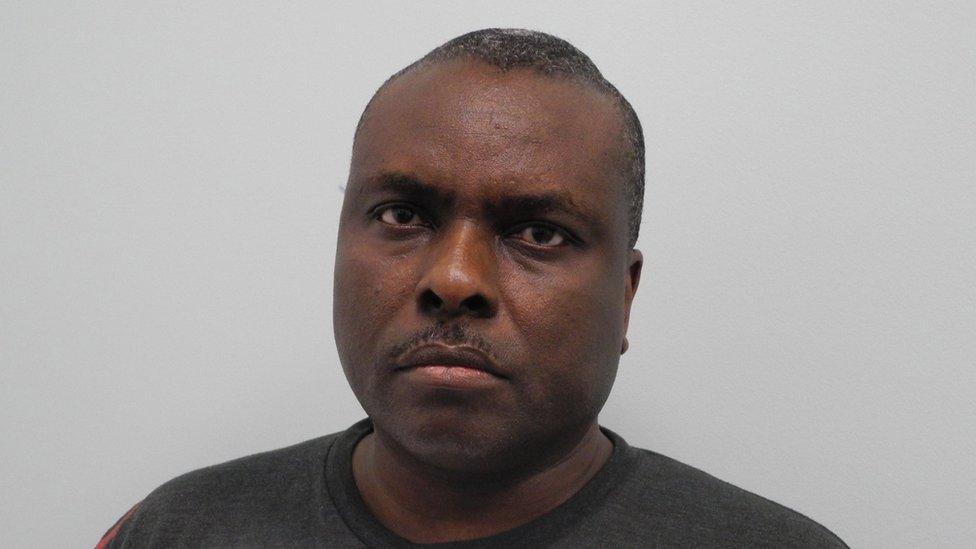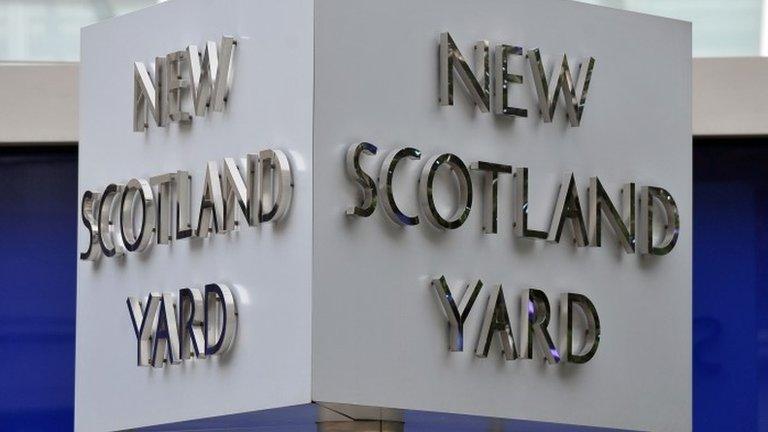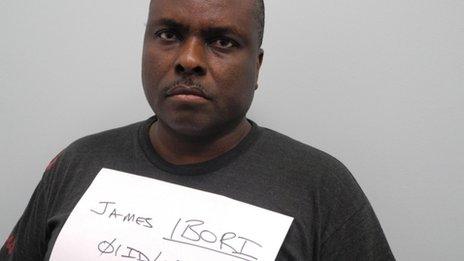Nigerian ex-governor James Ibori released from UK jail
- Published

James Ibori was jailed for 13 years in 2012 for money-laundering offences
Convicted fraudster and former Nigerian state governor James Ibori has been released, despite attempts by the home secretary to detain him in prison.
He was due for release on Tuesday, having agreed to be deported after serving half of his 13-year sentence.
But it has now emerged that the Home Secretary, Amber Rudd did not intend to deport Ibori to Nigeria until he handed over £89m of "proceeds of crime".
A High Court judge said attempts to detain him were "quite extraordinary".
Ordering Ibori to be immediately freed from prison, Mrs Justice May said: "You don't hold someone just because it is convenient to do so and without plans to deport them."
'Misuse of powers'
A Home Office application that Ibori be electronically tagged and subject to strict curfew conditions was also rejected after the judge accepted arguments that the home secretary was attempting to misuse her immigration and deportation powers.
Ibori, a former London DIY store cashier, was jailed for fraud totalling nearly £50m in April 2012.
He evaded capture in Nigeria after a mob of supporters attacked police but was arrested in Dubai in 2010 and extradited to the UK - where he was prosecuted based on evidence from the Metropolitan Police.
On Wednesday, the Home Office's barrister said the government was concerned that Ibori might "frustrate confiscation proceedings" and wanted him kept in jail or subject to strict controls on his movement.

Ibori raised his hand to acknowledge supporters after leaving Asaba High Court in Nigeria's Delta State in 2009
But it emerged in court that the Crown Prosecution Service (CPS), which is pursuing the confiscation proceedings, was "neutral" about Ibori's release and possible deportation.
Ian MacDonald QC, representing Ibori, said: "The Secretary of State has taken it upon herself. There is no objection from (the CPS) for release."
"This is extraordinary", Mrs Justice May said. "They (the CPS) don't care."
"Why doesn't the Secretary of State just send him back?" she asked. "He wants to go. She wants him to go".
Government prize
The conviction of James Ibori followed a government anti-corruption campaign led by the Department for International Development (DfID) 10 years ago.
But earlier this year the Director of Public Prosecutions, Alison Saunders, demanded a review of the evidence following allegations that police took bribes and prosecutors covered it up.
"The review team found material to support the assertion that a police officer received payment in return for information," the CPS admitted in September.
In court on Wednesday, Ibori's barrister, Ivan Krolic, explained how another defendant in the fraud case had appealed against conviction on the grounds that "police officers in the investigations had been corrupt".
"The court of appeal rejected that after counsel for the Crown indicated that there was nothing to support the allegation," Mr Krolic explained.
"And then it turned out there was," Mrs Justice May interjected. "Yes", Mr Krolic replied.
Ordering Ibori's release, Mrs Justice May said: "The Secretary of State appears to have take it upon herself that Mr Ibori does remain in this country, in apparent contradiction of the order served earlier this year to deport him."
"The position of the Secretary of State, as very candidly set out by Mr Birdling (representing the home secretary), is that she accepts that there is an argument that she has no power to detain him."
"I have decided that the balance of convenience falls heavily in favour of his immediate release.
"I am not prepared to impose conditions involving tagging or curfews."
The judge said the matter of Ibori's deportation should be heard before the end of January.
Correction 19 January 2017: The figure relating to "proceeds of crime" has been amended from £18m to £89m in line with the court transcript.
- Published16 September 2016
- Published20 May 2016

- Published17 April 2012
- Published17 April 2012

- Published28 February 2012